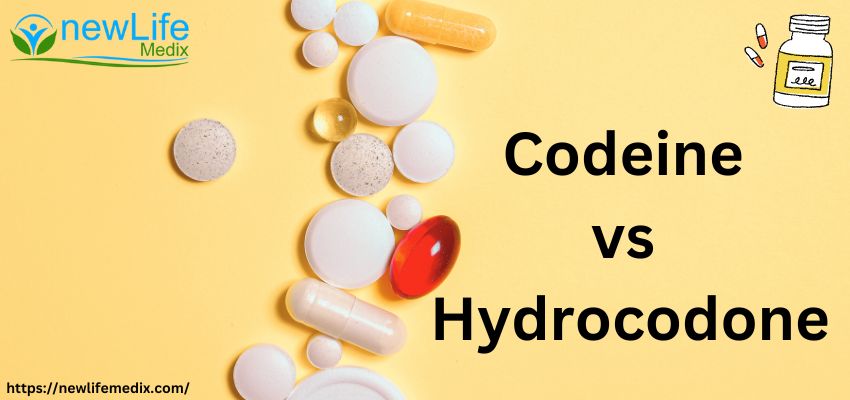Codeine and Hydrocodone are both drug opioids meaning they belong to the same class of medicines. But still, they have different functionality in the body. That is the main reason which leads to Codeine vs Hydrocodone analysis. In this vlog, we will show the various aspects that distinguish two similar medicines.
Codeine vs Hydrocodone: An Overview
Codeine is a prescription opioid that is actively in use for pain control and cough symptoms. It is a low-potency opioid pain medication as most individuals can take codeine and mix it with acetaminophen to treat pain. It is a combinational substance with acetaminophen or aspirin.
Brand names of Codeine include:
- Tylenol with codeine
- Empirin with codeine
- Robitussin AC
Hydrocodone is a semi-synthetic opioid. The prescription of opioids used for the treatment of pain is combined with acetaminophen to enhance pain relief. Hydrocodone is stronger than Codeine and doctors prefer it to treat moderate to severe pain.
Brand names of Hydrocodone include:
Codeine and Hydrocodone are a common ingredient in cough syrups. Because they help to reduce the cough and help to calm your breathing or make it easier to sleep in illness.
Major Difference between Codeine and Hydrocodone:
- Hydrocodone is a Schedule II controlled substance, meaning it has a high risk of abuse, addiction, and dependence on codeine. It has a controlled substance status depending on its strength and other ingredients and can range from Schedule II to Schedule V.
- Codeine is a naturally occurring opioid and hydrocodone is partially synthetic.
- Hydrocodone is stronger than codeine and it is generally not a prominent choice for severe pain but for cough.
- Hydrocodone breaks down into Norhydrocodone and Hydromorphone as the codeine converts into morphine when it enters the brain.
Side Effects of Codeine & Hydrocodone:
Codeine:
Individuals who take codeine cough syrups frequently experience pain alleviation and exhilaration. Some of the side effects of codeine are as follows:
- Stomach cramps
- Constipation
- Dry mouth
- Decrease in blood pressure
- Dizziness
- Seizures
- Blurred vision
If Codeine individuals engage in long-term codeine addiction and substance abuse, the following side effects can occur:
- Depression
- Anxiety
- Memory impairment
- Kidney damage
- Liver damage
- Increased risk of death
Hydrocodone:
When engaging in Hydrocodone abuse, there is an increased risk of experiencing moderate to severe side effects of hydrocodone abuse. Some of the common side effects individuals will experience are
- Stomach pain
- Headache
- Backpain
- Muscle tightening
- Difficulty falling asleep or remaining asleep
- Dry mouth
- Vomiting
- Shallow or light breathing
- Irregular heartbeat
Similarities between Codeine and Hydrocodone:
They have multiple similarities including:
- Both medications belong to opioids
- Both are active choices in pain relief prescriptions.
- Both are controlled substances
- They both carry an FDA-boxed warning for overdose risk and should be avoided with other depressants like benzodiazepines.
- Enzymes of kidneys work in the breaking of both substances.
Forms and Dosage of Codeine and Hydrocodone:
Codeine is available in immediate-release oral tablets. They come in 15mg, 30mg, and 60mg resistance.The doctor suggests taking a few hours for medicine.
The mg of Codeine available:
- Codeine 15mg
- Codeine 30mg
- Codeine 60mg
Hydrocodone is also available in immediate-release oral tablets, but only when it is combined with acetaminophen. These medicines are used in pain and are taken between 4 to 6 hours.
The mg of Hydrocodone available:
- Hydrocodone 2.5 mg
- Hydrocodone 5 mg
- Hydrocodone 7.5 mg
- Hydrocodone 10 mg
The wrap-up words:
With this, the analysis of Codeine vs Hydrocodone comes to an end. Both Codeine and Hydrocodone are used for cough syrups and as pain relief meds but in different compositions. The type of medicine that will suit you depends on your body’s reaction so before starting a medication, it is highly recommended to discuss it with your doctor.

